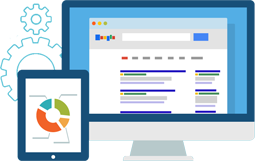
Why Page Loading Speed Affects SEO
Page loading speed is an essential factor that affects the user experience of a website, and it refers to the time it entails for a page on a website to load and display its contents thoroughly. Page loading speed is also a critical Los Angeles SEO (search engine optimization) factor as it directly impacts the ranking of a website in search engine results pages (SERPs).
In this article, we will discuss how page loading speed affects SEO.
1. User Experience
Page loading speed is directly related to user experience. A slow-loading website frustrates users, who will likely abandon it if it takes too long to load. On the other hand, a fast-loading website enhances the user experience and encourages users to spend more time on the website. This increased engagement and dwell time sends positive signals to search engines, and they consider it an indication of a high-quality website.
2. Bounce Rate
Bounce rate refers to the percentage of viewers who click away from a website without visiting other pages. A slow-loading website increases the bounce rate as users tend to leave it if it takes too long. A high bounce rate sends negative signals to search engines, and they consider it an indication of poor user experience. As a result, search engines may lower the website’s ranking in SERPs.
3. Page Speed as a Ranking Factor
In 2010, Google officially announced that page loading speed is a ranking factor in its algorithm. Since then, page loading speed has become an important SEO factor. Google considers website loading speed essential because it wants to provide the best user experience. If a website takes too long to load, Google may rank other faster websites higher in SERPs.
4. Mobile-Friendliness
In recent years, the use of mobile devices to access websites has increased significantly. Mobile users expect fast-loading websites as they are often on the go and have less time to wait. Google has recognized this trend and has made mobile-friendliness a crucial ranking factor. A website that loads fast on mobile devices will likely rank higher in SERPs.
5. Crawling and Indexing
Search engines use bots to crawl and index websites. These bots have a limited amount of time to crawl a website. If a website takes too long to load, the bot may not be able to crawl all the pages, which means some pages may not get indexed. This can negatively impact the SEO of the website, as pages that are not indexed cannot appear in SERPs.
Conclusion
In conclusion, page loading speed is an important SEO factor that affects the user experience, bounce rate, ranking, mobile-friendliness, and crawling and indexing of a website. Therefore, it is essential to optimize the loading speed of a website to improve its SEO performance. Website owners can use tools such as Google PageSpeed Insights to identify the areas that need improvement and take the necessary steps to optimize the loading speed.
Need more help with anything related to SEO? Please reach out to Drive Traffic Media; we’ll happily answer any of your questions. Call us at (949) 800-6990 or (310) 341-3939 for a free consultation.


